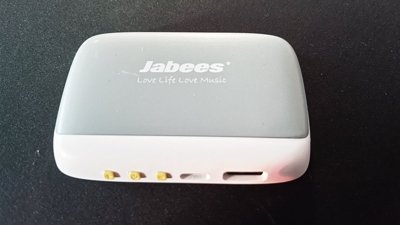A new report by Kim Zetter published by Wired identified the roommate named in the affidavit, and reported that she contacted contacted Apple after Hogan connected the prototype iPhone to her computer.
The investigating detective wrote in the affidavit that "[The roommate] contacted Apple in order to absolve herself of criminal responsibility.†The tip resulted in police preparing a search warrant for Hogan's apartment.
Zetter reported that the roommate contacted police again two days later, before the search warrant had been served, as Hogan and his other roommate, Thomas Warner, were preparing to remove evidence from their home, including a desktop computer, serial number stickers from the iPhone, a thumb drive and a memory card.
That tip sent police on a chase following both Hogan and Warner in different directions. The police found Hogan at his parents house, and Hogan then called Warner. Both men eventually cooperated in divulging the location of the items, which were scattered in various locations: the PC had been left at a church, while the stickers were dropped at a gas station and the other items had been thrown in a bush.
The roommate had also reported to Apple "that Hogan had found the phone and had been offering it to news outlets in exchange for a payment, despite having identified Powell as the rightful owner from a Facebook page visible on the phone’s display when he found it."
In contrast with Wired's original report which suggested Hogan was diligently working to find a news organization that could help him return the phone, the affidavit says Hogan reportedly told his roommate, "Sucks for him [the Apple engineer]. He lost his phone. Shouldn't have lost his phone."
The roommate also revealed that Hogan had told her he had obtained a total of $8,500 from the stolen phone, and that he was expecting another bonus from Gizmodo once Apple officially announced the product. Wired's earlier report described Hogan's transaction as "sharing."
After selling the prototype to Gizmodo, the affidavit revealed that Steve Jobs contacted the site's editor, Brian Lam, to ask for its return. Lam "responded via the e-mail address...that he would return the iPhone on the condition that Apple provided him with a letter stating the iPhone belonged to Apple."
The affidavit also notes that Apple reported that the iPhone prototype was "invaluable" and that "the publication of Gizmodo’s story was 'immensely damaging' to the company, because consumers would stop buying current generation iPhones in anticipation of the upcoming product," according to Zetter's report.
Apple also complains in the affidavit that Gizmodo's disassembly of the prototype left it damaged. The affidavit also says that the photos Gizmodo took and published were an act of copying trade secrets, and that Gizmodo's Jason Chen was under investigation for receipt of stolen property.
That indicates that the affidavit used for the search warrant was not merely an attempt to discern Chen's sources as a journalist, but rather the investigation of criminal conduct, which shield laws can not absolve journalists from.
Zetter noted that the affidavit "supports the story, offered by Gizmodo and Hogan’s attorney, that the phone was found, and not stolen from the Apple employee," noting that the engineer said it was "possible, but unlikely, that it was stolen from the bag" he had placed it in.
"However," Zetter added, "it’s generally considered theft under California law if one 'finds lost property under circumstances that give him knowledge of or means of inquiry as to the true owner' and yet appropriates the property for his own use 'without first making reasonable and just efforts to find the owner and to restore the property to him.'"
 Prince McLean
Prince McLean
-xl-(1)-xl-xl-m.jpg)





-m.jpg)






 Amber Neely
Amber Neely
 Wesley Hilliard
Wesley Hilliard
 Marko Zivkovic
Marko Zivkovic
 Andrew Orr
Andrew Orr
 Malcolm Owen
Malcolm Owen


 Andrew O'Hara
Andrew O'Hara







309 Comments
any doubt he knew he was committing a crime now?
No?
Did they leak the phone themselves?
No.
any doubt he knew he was committing a crime now?
and what's the penalty for knowingly destroying evidence of a crime?
Hogan's quotes provided by the roommate would perhaps be considered hearsay and inadmissible in a court of law, but Hogan's actions speak louder anyway.
and what's the penalty for knowingly destroying evidence of a crime?
Hogan's quotes provided by the roommate would perhaps be considered hearsay and inadmissible in a court of law, but Hogan's actions speak louder anyway.
You're not a lawyer. The quotes would be admissible because they are statements by a party opponent.
and what's the penalty for knowingly destroying evidence of a crime?
Hogan's quotes provided by the roommate would perhaps be considered hearsay and inadmissible in a court of law, but Hogan's actions speak louder anyway.
it's called, among other things, obstruction of justice.
This guy is in a lot of trouble. And the more trouble he's in, the more trouble Chen is in.
I feel sorry for Chen. He was hung out to dry by Gizmodo. They gave him bad advice.